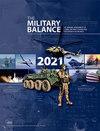Chapter Four: Europe
Q3 Social Sciences
引用次数: 2
Abstract
ro pe larly its deteriorating relations with several other European states (not least Germany) and renewed interest in a closer relationship with Russia, exacerbated the uncertainty. By the end of 2017, there was still little clarity on how the UK’s exit from the EU would affect security and defence. With ‘Brexit’ due to take effect in March 2019, government officials across EU member states were keen to ensure that it would not negatively affect security and defence cooperation: threat assessments across the continent consistently stressed the need for cooperation to tackle contemporary challenges and risks. The inauguration of Donald Trump as president of the United States left many European leaders uncertain about the durability of the transatlantic bond underpinning European security. Initially vague about NATO’s collective-defence guarantee (enshrined in Article 5 of the North Atlantic Treaty), President Trump appeared to make US commitment contingent on increased European defence spending, notably chiding other leaders on this topic when he opened NATO’s new headquarters in May 2017. Nonetheless, Trump used a speech in Warsaw on 6 July to declare that the US stood ‘firmly behind Article 5’, both in terms of words and actions. Indeed, in its FY2018 budget, the US Department of Defense increased the funding allocated to its European Reassurance Initiative, and continued rotational troop deployments in NATO’s eastern member states. Even so, Trump’s rhetoric gave NATO members pause for thought. Following a meeting of NATO heads of state and government in Brussels, German Chancellor Angela Merkel had concluded on 28 May, with reference to the new US administration and Brexit, that ‘the times in which we could completely rely on others are, to a certain extent, over’ and that ‘we Europeans truly have to take our fate into our own hands’. While her comments were expressed during an election rally and were therefore mostly intended for domestic consumption, they resonated throughout the Alliance, indicating that cohesion remained fragile, despite efforts to galvanise NATO into tackling the challenges posed by a deteriorating security environment on its eastern and southern flanks. Chapter Four Europe第四章:欧洲
它与其他几个欧洲国家(尤其是德国)的关系不断恶化,并重新燃起了与俄罗斯建立更密切关系的兴趣,这加剧了不确定性。到2017年底,英国退出欧盟将如何影响安全和防务仍不明朗。由于“英国脱欧”将于2019年3月生效,欧盟成员国的政府官员都希望确保它不会对安全和防务合作产生负面影响:整个欧洲大陆的威胁评估一直强调合作应对当代挑战和风险的必要性。唐纳德·特朗普(Donald Trump)就任美国总统,让许多欧洲领导人不确定支撑欧洲安全的跨大西洋纽带能否持久。特朗普总统最初对北约的集体防御保证(载于《北大西洋公约》第5条)含糊其词,似乎将美国的承诺取决于欧洲国防开支的增加,尤其是在2017年5月北约新总部开幕时,他在这个问题上指责了其他领导人。尽管如此,特朗普在7月6日华沙的一次演讲中宣称,美国无论是在言语上还是在行动上都“坚定地支持第5条”。事实上,在2018财年预算中,美国国防部增加了分配给“欧洲再保证倡议”的资金,并继续在北约东部成员国轮换部署部队。即便如此,特朗普的言论还是让北约成员国停下来思考。5月28日,在布鲁塞尔举行的北约国家元首和政府首脑会议之后,德国总理安格拉·默克尔(Angela Merkel)在谈到美国新政府和英国脱欧时得出结论,“我们可以完全依赖他人的时代在某种程度上已经结束了”,“我们欧洲人真的必须把命运掌握在自己手中”。虽然她的评论是在一次选举集会上发表的,因此主要是为了国内消费,但它们在整个联盟中引起了共鸣,表明尽管北约努力激励北约应对其东部和南部日益恶化的安全环境所带来的挑战,但凝聚力仍然脆弱。第四章欧洲
本文章由计算机程序翻译,如有差异,请以英文原文为准。
求助全文
约1分钟内获得全文
求助全文
来源期刊

The Military Balance
Social Sciences-Political Science and International Relations
CiteScore
1.00
自引率
0.00%
发文量
18
 求助内容:
求助内容: 应助结果提醒方式:
应助结果提醒方式:


